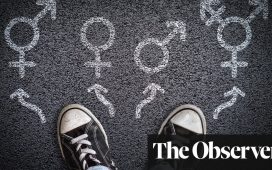Democratic presidential candidate former vice president Joe Biden speaks to South Bend Mayor Pete Buttigieg during a break in the Democratic primary debate hosted by NBC News at the Adrienne Arsht Center for the Performing Arts, Thursday, June 27, 2019, in Miami. (AP Photo/Wilfredo Lee) Photo Credit: ASSOCIATED PRESS
Thursday’s Democratic debate had more than a few memorable moments on issues from gun control to climate change—but when it comes to education, the most headline-grabbing moment of the night was easily Mayor Pete Buttigieg’s comments on the student debt crisis. Specifically, news outlets focused on his statement that “College affordability is personal for us. Chasten and I have six-figure student debt,” with headlines like “Millennial Candidates Flex Their Relatability: I, Too, Have College Debt” from Vice and “Pete Buttigieg could become the first president with student loan debt” from Business Insider. But Buttigieg’s plan to address the student loan crisis differs in a few important ways from his opponents who have been the most vocal on the issue, especially Senator Elizabeth Warren, who has made her plans for tuition-free public universities a centerpiece of her campaign. So why does the only frontrunner for whom student debt is a personal issue not support canceling all student debt?
Debt-free college, but not free college.
Buttigieg believes in free college for low- and middle-income students, not the super-rich. In Thursday’s debate, Buttigieg stated that he doesn’t “believe it makes sense to ask working-class families to subsidize even the children of billionaires.” Having attended Harvard, which has more than its fair share of billionaires. 15% of Harvard students come from the top 1% of income, making over $630K, so Buttigieg knows that there are more than a few people who can comfortably afford Harvard’s sky-high tuition. However, he’s also familiar with debt-free college—under Harvard’s need-based aid policy, for most American families (specifically, 60% of families) the cost of a Harvard education would be $0. Buttigieg argues for a state-federal partnership focused on making our state universities affordable for all. Rather than forgiveness of existing debt or tuition-free colleges, Buttigieg’s first priority is revitalizing and fully funding our public universities without removing tuition dollars as a funding source.
Prioritizing students who enter public service.
Buttigieg also says, in this in-depth interview with Vice on student debt, that “I think it’s okay to have student loan forgiveness attached to certain things,” referencing the attempted Public Service Loan Forgiveness program. He is campaigning to provide debt-free four-year college to all, but to “provide more support for students entering public service.” As both the husband of a schoolteacher and the only candidate with military experience (who is polling above 1%), it’s understandable that Buttigieg sees the value in public and national service. He believes that opportunities for public and national service (from the military to the Peace Corps) “should be expanded until service becomes a universal expectation for every American youth.” It’s a surprisingly old-school opinion for one of the youngest candidates—but it’s also reminiscent of one of our youngest presidents, who told us to “Ask not what your country can do for you — ask what you can do for your country.”
College should an option, but not an expectation
In the debate, Buttigieg ended his comments on college affordability on this note: ”Yes, it needs to be more affordable in the country to go to college. It also needs to be more affordable in this country to not go to college. You should be able to live well […] whether you went to college or not.” As the only candidate faced with the actual burden of college debt (who is polling above 1%), Buttigieg questions the role and value of higher education. This ties into other, sweeping parts of his campaign, from infrastructure reform to supporting organized labor to establishing a $15 minimum wage. Anyone who has been on the job market in the past decade can identify with the issue of always seeming to have either too much or not enough education for a role you’re otherwise qualified for. More so than his opponents, Buttigieg understands that, as our country grows more and more educated, employer expectations have risen while wages have remained stagnant, and that reforming our higher education system must go hand-in-hand with reforming our job market.






